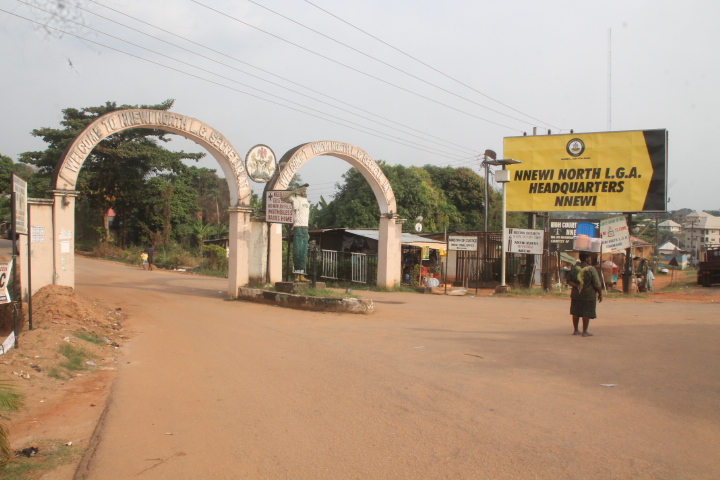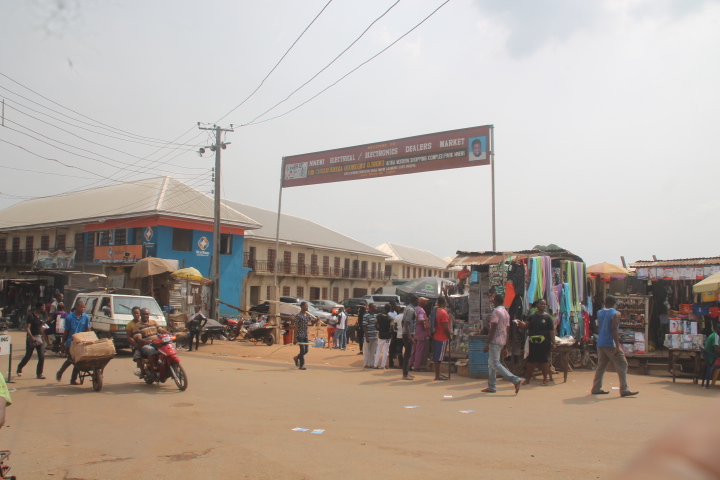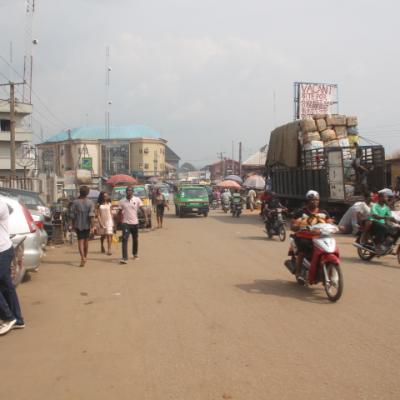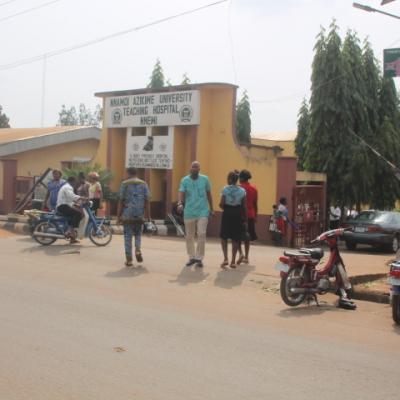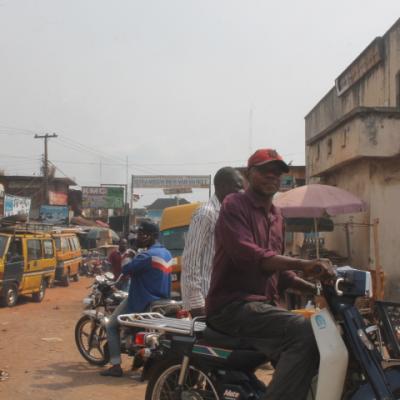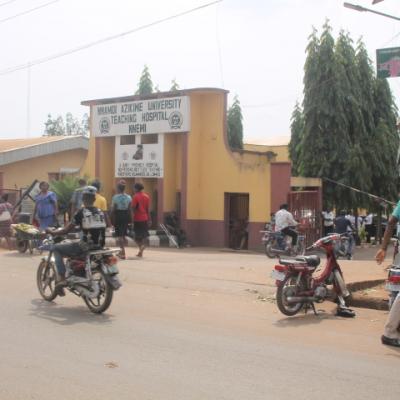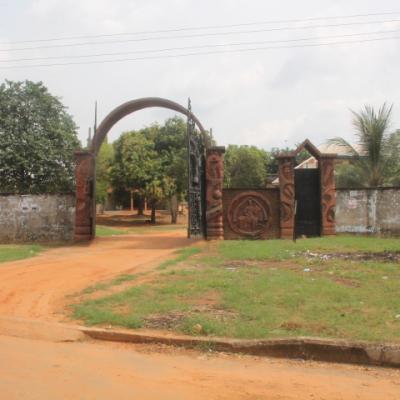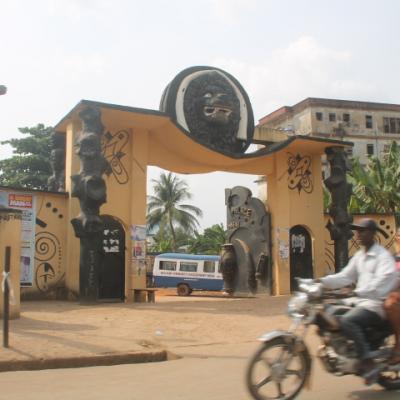Nnewi Town
Nnewi existed as an independent kingdom from the 15th century to 1904, when British colonial administration occupied the kingdom. Nnewi kingdom was founded on four quarters (large villages), namely:
- Otolo,
- Uruagu,
- Umudim, and
- Nnewi - Ichi.
Each quarter is made of several villages; and each village was divided into family units called 'umu-nna'; comprising of different family units within the quarter; the first family known amongst other families within the quarter become the head, the “obi” of the whole families within the quarter.
Hierarchy: -
- Otolo: the first family in Otolo quarter is the Orizu Umu Onyebuchi family; which is also the first family in Nnewi town as whole.
- Uruagu: the first family in Uruagu quarter is Obi Ezeogidi family.
- Umudim: the first family in Umudim is
- Nnewi-Ichi:
Geography.
Nnewi falls within the tropical rain forest region of Southern Nigeria before the mangrove forest on the confluence of River Niger flowing into the Atlantic Ocean. The city is located east of the southern segment of River Niger, and about 22 kilometers south east of Onitsha in Anambra state of the Federal Republic of Nigeria. Nnewi town suffers from soil leaching and erosion which has reduced the soil in some areas to a porous sandy terrain. However, it remains an area of rich agricultural produce and the epicenter of business trade.
Size: Nnewi is the second largest city in Anambra State in southeastern Nigeria. Nnewi as a metropolitan city encompasses two local government areas, Nnewi North and Nnewi South; Nnewi North is commonly referred to as Nnewi central, and comprises four autonomous quarters: Otolo, Uruagu, Umudim, and Nnewi-Ichi. Nnewi North also includes Ichi, an autonomous neighbouring town.
Population: Nnewi has an estimated population of 391,227 as recorded in the Nigerian Population census of 2005. The city spans over 1,076.9 square miles (2,789 km2) in Anambra State. Nnewi Metropolitan Area and its satellite towns is home to nearly 2.5 million residents as of 2005. Dimensionally, Nnewi has an edge over all other units, being recognized by the 1953 census figures as the largest inland town of all others in the Eastern states of Nigeria.

